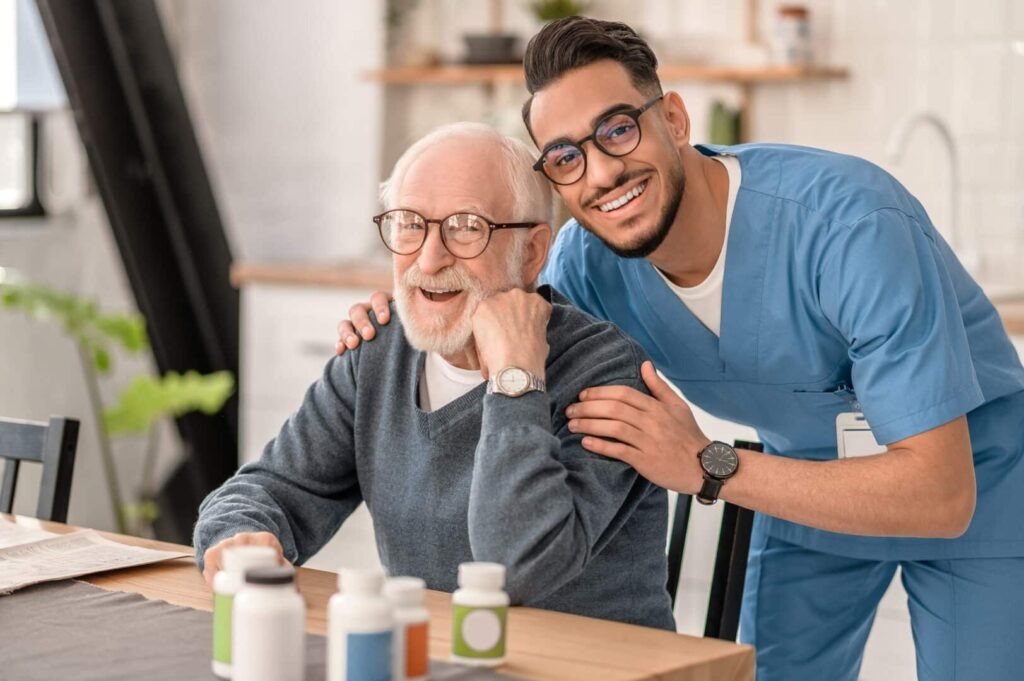Many people turn away from the idea of donation because they assume they’re “too old,” “too sick,” or simply “not healthy enough.” I’ve talked with countless individuals who believed their medical conditions or age disqualified them from making any meaningful contribution after death. This misconception keeps many from exploring options that could still create a lasting impact.
You can still donate my body to science even when organ donation isn’t possible. That’s because body donation programs actually need donors with diverse medical histories – including those with conditions that would typically disqualify someone from traditional organ donation. Many are surprised to learn this, but it makes perfect sense when you consider the purpose behind each type of donation.
The Difference Between Organ Donation and Body Donation
Organ donation aims to provide working organs for transplantation into living patients. This naturally requires strict criteria – organs need to be healthy and functional. Someone waiting for a liver transplant needs a liver that works properly.
Body donation serves a completely different purpose. When you donate your body, you’re contributing to medical education and research rather than direct patient care. Medical students learn anatomy, researchers study disease progression, and surgical teams practice techniques – all of which benefit from examining bodies with various conditions.
The confusion happens because people lump these different types of donation together. They’re actually separate programs with different requirements, and body donation programs are typically much more inclusive about who can donate.
Medical Conditions That May Disqualify Organ Donation But Not Body Donation
Many common conditions that prevent organ donation won’t necessarily prevent body donation. Cancer, for example, often disqualifies organ donors but can be incredibly valuable for body donation. Researchers studying cancer treatments need access to bodies affected by the disease to advance their understanding and develop better therapies.
Neurodegenerative diseases like Alzheimer’s or Parkinson’s present another example. These conditions typically prevent organ donation, but bodies affected by these diseases provide essential research opportunities. Medical researchers need to study affected tissues to develop treatments and potential cures.
Age represents perhaps the biggest misconception. While organ donation programs often focus on younger donors, body donation programs welcome elderly donors. In fact, many programs especially value older donors because they help students and researchers understand the effects of aging on the human body.
Why Medical Research Needs Diverse Bodies
Medical education improves when students can study a wide range of bodies. Think about it – if medical students only studied “perfect” specimens, how would they learn to treat the variety of patients they’ll encounter in their careers?
Research advances when scientists can examine different manifestations of disease. Every body tells a unique story of genetics, environment, lifestyle, and medical history. These variations contribute valuable data points to researchers trying to understand complex conditions.
Surgical techniques improve when surgeons can practice on diverse anatomical structures. Bodies with previous surgeries, joint replacements, or unusual anatomical variations provide invaluable training opportunities for developing new approaches and tools.
The reality is that medical science needs imperfection. The very conditions that might disqualify someone from organ donation often make their body donation particularly valuable for specific research purposes.
Common Conditions That May Still Allow Body Donation
Heart disease affects millions of Americans, and while it might prevent heart donation, it doesn’t typically prevent whole body donation. In fact, bodies with cardiovascular conditions help train future cardiologists and contribute to research on treatment advances.
Diabetes presents similar opportunities. While it might complicate organ donation, bodies affected by diabetes provide crucial research material for understanding this widespread condition and its effects on various body systems over time.
Joint replacements or previous surgeries often don’t disqualify donors. These bodies help train surgeons on how to work with patients who have medical hardware or altered anatomy – an increasingly common scenario in medical practice.
Even infectious diseases may be accepted by some programs, though policies vary. Bodies affected by certain infectious diseases provide irreplaceable research opportunities for developing treatments and preventative measures.
What Might Still Disqualify Body Donation?
While body donation programs accept a wide range of conditions, some circumstances might still prevent acceptance. Extreme obesity sometimes creates logistical challenges for donation programs, though policies vary widely between organizations.
Severe trauma at time of death might prevent donation if it compromises too much of the body’s educational or research value. This varies case by case, and some programs still accept such donations for specific purposes.
Some infectious diseases may be declined due to safety concerns, particularly highly contagious conditions that pose risks to those handling the body. Always check with specific programs about their policies regarding particular conditions.
Timing and location factors sometimes create barriers. If too much time passes between death and when the body can be transported to the donation facility, donation might not be possible regardless of medical history.
How to Find Out If You’re Eligible
The best approach is simply to ask directly. Contact body donation programs in your area and discuss your specific situation. They can provide the most accurate information about their acceptance criteria.
Pre-registration often includes a medical screening process where program staff can review your medical history and let you know if any conditions might prevent donation. This gives peace of mind and allows time to make alternative arrangements if necessary.
Keep in mind that policies vary between programs. If one program can’t accept your donation due to a specific condition, another program might welcome it, especially if they specialize in researching that particular condition.
Family physicians can sometimes provide guidance based on their knowledge of your medical history, though they won’t know the specific policies of each donation program. They can help interpret medical terms and conditions when communicating with donation programs.
Planning Ahead Makes All the Difference
The key to successful body donation is planning ahead. Programs often can’t make acceptance decisions at the last minute, so pre-registration greatly increases the chances of acceptance regardless of medical history.
Documentation matters tremendously. Having your wishes clearly stated in writing, with proper forms completed and accessible to your family, ensures the donation process starts promptly after death.
Family conversations are crucial. Make sure your loved ones understand your wishes and know who to contact. Their support will be essential for carrying out your donation plans when the time comes.
Alternative plans provide peace of mind. Even with pre-registration, circumstances at the time of death might prevent donation. Having a backup plan ensures your family won’t face uncertainty during an already difficult time.
The Profound Impact of “Imperfect” Donations
Every body teaches something unique. Medical students often report that donors with complex medical histories provided their most valuable learning experiences, teaching them about disease progression in ways textbooks never could.
Research breakthroughs often come from studying bodies with specific conditions. Each donation contributes to the collective knowledge that eventually leads to better treatments and potential cures for future generations.
The gift of education extends beyond medical students. Many healthcare professionals – from nurses to physical therapists to emergency responders – benefit from anatomical education made possible through body donation.
Perhaps most importantly, body donation creates meaning from difficult medical journeys. Many donors find comfort in knowing that the conditions that caused them suffering in life might help prevent others from experiencing the same in the future.
Making Your Decision
Consider your motivations and values when thinking about body donation. For many, the opportunity to contribute to medical education and research provides comfort and meaning.
Discuss your thoughts with loved ones who will be responsible for carrying out your wishes. Their understanding and support will be essential for successful donation.
Research different programs to find the best fit for your situation and values. Some focus primarily on medical education, while others emphasize specific research areas that might align with your personal experiences.
Remember that body donation represents one of many meaningful end-of-life options. The right choice is the one that brings you peace and aligns with your values.
Conclusion
Body donation offers a path to making a difference even when organ donation isn’t possible. The very conditions that might disqualify someone from organ donation often make their body donation particularly valuable for research and education. What matters most isn’t having a “perfect” body, but rather the willingness to contribute to the advancement of medical knowledge. By understanding the different purposes and requirements of various donation programs, more people can discover opportunities to leave a meaningful legacy through the gift of body donation – a gift that continues to teach, heal, and inspire long after life ends.
YOU MAY ALSO LIKE: Is Spiritual Awakening the Answer to the Mental Health Crisis?











